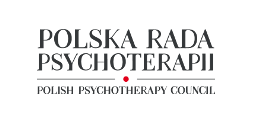Training in psychotherapy – hourly minimums
The Polish Psychotherapy Council has been a forum for psychotherapists and their organizations for over 12 years. In particular, it was possible to agree on standards for the profession, the so-called training minima, which were adopted and implemented by all associations associated in the Council. They were used by central authorities as conditions to be met for a psychotherapy to be included in publicly funded health services, in the regulation of the Minister of Health and in the relevant acts of the President of the National Health Fund.
It is worth noting that in 2019 the minima defined by the Council were included in the specialization programme for the newly established field “children and youth psychotherapy” in the health care system.
According to the standards of the Polish Psychotherapy Council, the duration of a psychotherapy training course shall include minimum 1200 hours and at least:
- 590 hours of theory training, as well as practical skills and methods,
- 100 hours of personal psychotherapy or equivalent experience in an individual or group setting,
- 150 hours of individual or group supervision,
- 360 hours of clinical internship enabling contact with patients with various diagnoses.
Persons undergoing training or in the certification stage are expected to practice under constant supervision. After obtaining a certificate confirming the completion of systematic and comprehensive post-graduate training in psychotherapy, the psychotherapist can proceed to the certification process and apply for a psychotherapist’s certificate to a professional association.
Training in psychotherapy – a framework program
In accordance with the standards of the Polish Psychotherapy Council, the training program in psychotherapy should include the following areas of knowledge and skills, introduced in parallel during the course of study:
- Theoretical knowledge in the following areas:
- theories of human development,
- social and cultural determinants of psychotherapy,
- theories of psychopathology and diagnostic classifications,
- psychotherapeutic diagnosis,
- psychotherapeutic approaches,
- selected elements of clinical knowledge.
- Practical training, in particular:
- psychotherapeutic skills and methods,
- personal development through engagement in psychotherapeutic experience:
- psychotherapy or other therapeutic experience in an individual or group setting that enables a trainee to gain knowledge about their own functioning,
- learning about personal patterns of functioning, and experiencing, and personality traits,
- self-reflection and analysis of one’s own functioning in a psychotherapeutic relationship,
- psychotherapeutic practice under supervision,
- clinical internship.
- Improving practical and theoretical skills through:
- courses, seminars, didactic workshops, exercises, lectures and other specified didactic forms applied in a given modality which include a specifically determined range of theoretical knowledge,
- clinical internships, practical classes, practices and other specified methods of acquiring practical work skills,
- forms and methods of self-education:
- studying professional literature (magazines, monographs, textbooks),
- participation in conferences, scientific seminars and other events,
- preparation of papers, publications or other materials.
[box style=”1″] It should be remembered that a comprehensive postgraduate training in psychotherapy is a specialist training, separate from specialization in clinical psychology or psychiatry. The training may be attended by individuals with a Master’s degree and fulfilling other conditions defined by the training centre, e.g. accredited or recommended by members of the Polish Psychotherapy Council.[/box]
